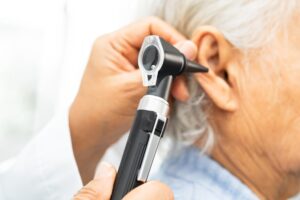Falling: It’s a more common issue than you think!
Do you ever worry about the consequences of falling, either for yourself or for someone else? If so you are not alone. In fact, studies have shown that falls are considered one of the top health risks in adults who are over the age of 65.
One quarter of these folks — millions upon millions of American adults — are subject to falls every year, due to a number of different common health hazards, including dizziness and balance issues, vision issues, low muscle tone, side effects from certain prescription medications, clutter in the home, and even things like unsecure rugs and carpeting or general disrepair found in the home.
What’s worse, experts who have studied the effects of falling believe that once a person suffers a fall (and any associated injuries) that they will very likely fall once again.
Tips for preventing falls: What you can do to stay safe and active!
Luckily, there are simple things that people can do in order to prevent themselves from becoming one of the one in four adults over 65 who experience a fall every year. (We’d love to see that number drastically decrease!)
Broken bones, brain injuries, atrophy, and mobility issues can occur after a fall. We know you don’t want that for yourself or your loved ones, and neither do we! The repercussions of a fall can make simple, everyday activities — like bathing, walking the dog, preparing meals, going to the grocery store, or attending worship services — almost impossible to achieve.
So what are some simple things you can do to prevent falls from occurring? They include:
- Speaking with your primary care physician, as well as your vision, hearing, and dizziness specialists about your concerns regarding falling. They will listen to your thoughts on the matter, and, if necessary, can perform tests or provide treatment recommendations that will help hinder falls.
- Evaluating your medications to determine if anything you are taking might have side effects relating to falls. This is another conversation we recommend having with your primary care physician so that you can better understand your medications as well as any other options that might be available to you. Statistically speaking, experts have found that those who take two or more medications have an increased risk of falling. Advocate for yourself to learn more about these medications and if there are alternatives available.
- Begin or maintain annual eye exams. Your vision is a key player in your ability to evaluate the safety of your environment. If you have concerns about your version, don’t delay!
- See a balance and dizziness specialist. Your inner ear plays a crucial role in your perception of spatial relationships and your sense of balance. Sometimes, there can be things that occur in the inner ear that can cause symptoms like imbalance and dizziness that can be easily corrected by a balance and dizziness specialist. Colorado Ear Care proudly partners with the American Institute of Balance (AIB). We are distinguished as a Center of Specialty Care by AIB and are the only hearing care clinic in Colorado to carry this designation. Colorado Ear Care provides the best balance testing equipment available, which includes the only rotary chair in our state!
- Maintain an appropriate level of activity and exercise. Limiting your exercise and movement can cause the deterioration of muscle tone, which, in turn will increase your risk of falling. Speak with your doctor about an exercise program that works with your lifestyle. This will help you build muscle tone, improve your mood and balance, and it just might increase your lifespan!
- Don’t avoid using a cane or a walker — if you need it. There are some who fear that using a walker will increase their dependence on the device, further limiting their mobility over time. Not only do these devices help you stay engaged with your community, they also help to improve your balance, strength, and endurance.
- Stay as active as you can! There are many who might think that staying at home will actually make them safer, but you actually run the risk of isolating yourself, limiting your activity, and negatively impacting your physical and mental health. Stay active, stay in touch with loved ones, and stay engaged with the activities in the community that you love to participate in.
- Look for opportunities to make your home safer, and make them! Remove trip hazards, like poorly placed rugs or furniture, repair loose carpeting, and make sure any stairs inside or outside of the home have railings for you to steady yourself. Additionally, consider installing grab/safety bars in your bathrooms by your bathtubs, showers, and toilets.
Even more important facts about falls
- One-fifth of all falls reported result in head injuries and/or broken bones
- Over 800,000 people who fall must undergo hospitalization related to their injuries
- 3,000,000 must go to the emergency room for treatment due to their fall
- The most common injuries from falls include fractures to the hip, wrists, arms, and ankles
- 95% of all hip fractures are related to a fall
- The number one cause of traumatic brain injuries are associated with falls
- Serious brain injuries can occur with those who take medications like blood thinners — if you or a loved one takes these medications and experiences a fall, please seek medical attention as soon as possible
- Falls can make people fearful of engaging in activity, but limiting activities leads to weakness, loss of muscle tone, and an increased risk of falling
Colorado Ear Care can assist with your balance and dizziness concerns!
In addition to the care that you can receive from your primary care physician regarding medication, physical fitness recommendations, and vision care, Colorado Ear Care is here to help you with any balance or dizziness concerns you may have.
We provide comprehensive testing, clear, plainspoken treatment recommendations, and an overall relationship-based approach to the care that we provide. Keeping you healthy and active is our goal.
If you’re concerned that you or a loved one may be at risk of falling due to a balance or dizziness-related issue, call Colorado Ear Care today!




